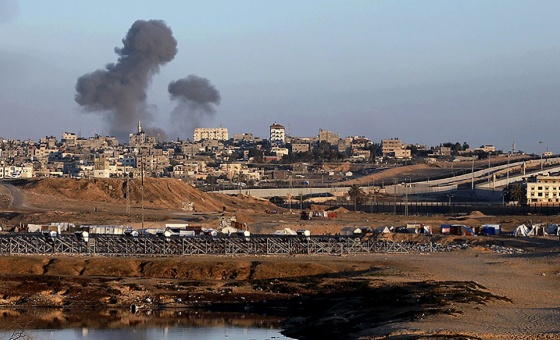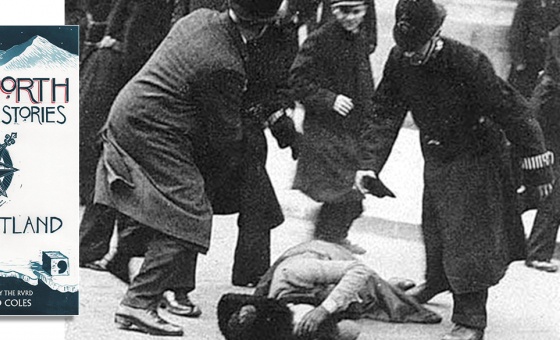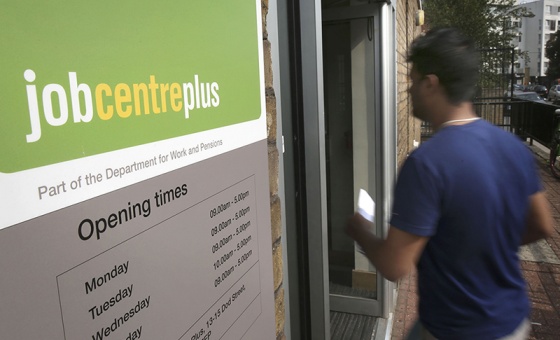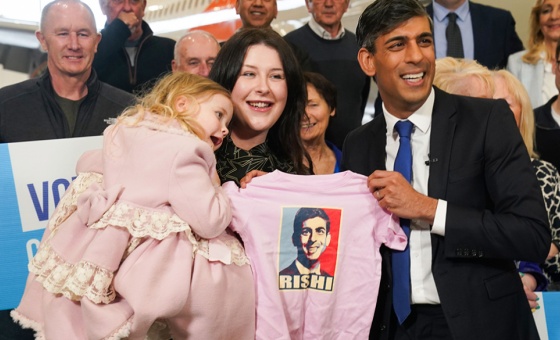This is the last article you can read this month
You can read more article this month
You can read more articles this month
Sorry your limit is up for this month
Reset on:
Please help support the Morning Star by subscribing here
WHILE it may be impossible to fathom the thoughts racing through the mind of WBC heavyweight champ Tyson Fury as he hit the canvas at the end of a counter left hook from Francis Ngannou in Riyadh, Saudi Arabia, last weekend, for those watching it was akin to witnessing an earthquake in slow motion.
For prior to that moment in the third round, the very idea that a man making his debut fighting under Queensberry Rules could even come close to laying a glove on a fighter widely considered to rank among the greatest heavyweights of all time seemed utterly perverse.
Fury left the ring after sneaking a ten-round split decision like a thief escaping through a living room window, such was the humiliation attached to his performance. The rolls of fat protruding over his trunks were evidence of a man who’d arrived in Saudi Arabia the week before on a jolly rather with the intention to fight, more interested in revelling in the five-star treatment lavished on him by his Saudi hosts than throwing down.
If anything, Fury’s disastrous showing merely confirms the truth that nothing corrupts a fighter more than belief in his own hype to the point of surrounding himself not with trusted confidants but glorified fans whose entree into his entourage is predicated on blind adherence to the legend rather than to the man.
Fury clearly did not train properly for what he and those around him — not to mention the majority of the boxing commentariat — fully believed would be tantamount to an exhibition bout and an easy night’s 50 million quid. In the end Fury may have bagged the 50 million, but at what cost to his reputation and legacy — not to mention boxing’s?
As an event, the Saudis went all in as part of the rebrand that is well underway under the auspices of the kingdom’s current cut-throat-in-chief, Mohammed Bin Salman. Billed as the opening event of the third instalment of the months-long sporting and live entertainment winter festival known as Riyadh Season, the harsh truth is that the atmosphere in the stadium for the fight was about as lively as what you will encounter in your average morgue.
Truth be told, in Saudi Arabia more people attend a public beheading than they do a boxing event, which is why the organisers judiciously gathered a who’s who of boxing legends, past and present, in order to try and lend credibility to what on paper was a nothing fight. And though for fans of boxing around the world it may have stirred strong emotions of excitement to watch so much boxing and fighting royalty collected in one place, the squalid fact is that they were only there because the Saudis stuffed their mouths with gold.
Sadly, top flight boxing is now less a sport and more a bought and paid for spectacle of the absurd. Unfettered greed is quite literally turning it into a gangster’s paradise, with this latest instalment of hyped-to-death-tripe the grim nadir in the process thus far.
In the build-up you even had the embarrassing sight of Tyson Fury’s father, John Fury, calling out Mike Tyson for a future fight at the final press conference, prior to removing his T-shirt and placing himself front and centre at the ritual head to head. We’re all familiar with the concept of the problem child. Well here, at that moment, we were introduced to the concept of the problem dad.
The one saving grace, if there was one to be had, lay in the demeanour, conduct, and performance of former MMA heavyweight champion Francis Ngannou.
The epitome of quiet determination and dignity, the giant Cameroonian had already dealt with his toughest opponent long before he entered the ring in Riyhadh to face Fury. That opponent was life as the son of poverty in Cameroon.
Starting work at age 10 in a sand quarry, Ngannou gradually developed the desire to escape his plight and in his twenties decided to head into the unknown as a “illegal immigrant” to Europe. At age 26 he embarked on a 12-month journey that finally brought him to Spain, where he was immediately jailed for two months for crossing the border illegally.
From Spain he made his way to Paris, where he initially slept homeless on the street. His dream of fighting professionally sustained him, however, and one fateful day he walked into a gym in the French capital and was immediately taken under the wing of trainer Didier Carmont. Carmont it was who persuaded him to choose MMA over boxing and, well, the rest is history.
Ngannou’s hero growing up in poverty in Africa was Mike Tyson, and so how fitting that Tyson trained him to face Fury in Riyadh. Of such stories is the belief in capitalism as the maker of dreams made. This being said, in Riyadh last weekend all the hype and glitz and glamour in the world could never hope to conceal the brute reality of what was an attempt to place a curtain over a human rights desert.
Maybe, but perhaps not, the sport of boxing will at some point exit the realm of untruth and check in with reality. Until it does, Tyson Fury will continue to be able to represent himself as the “people’s champion” with a straight face, while complicit in the rebrand of a state whose primary business is not sporting extravaganzas but murder.
Fury’s next opponent is scheduled to be undefeated unified heavyweight champion Olexsandr Usyk, again in Saudi Arabia. Given last weekend’s display he’s got more chance of beating Jesus Christ. At least in Jesus he’ll be facing an opponent with bad hands.












